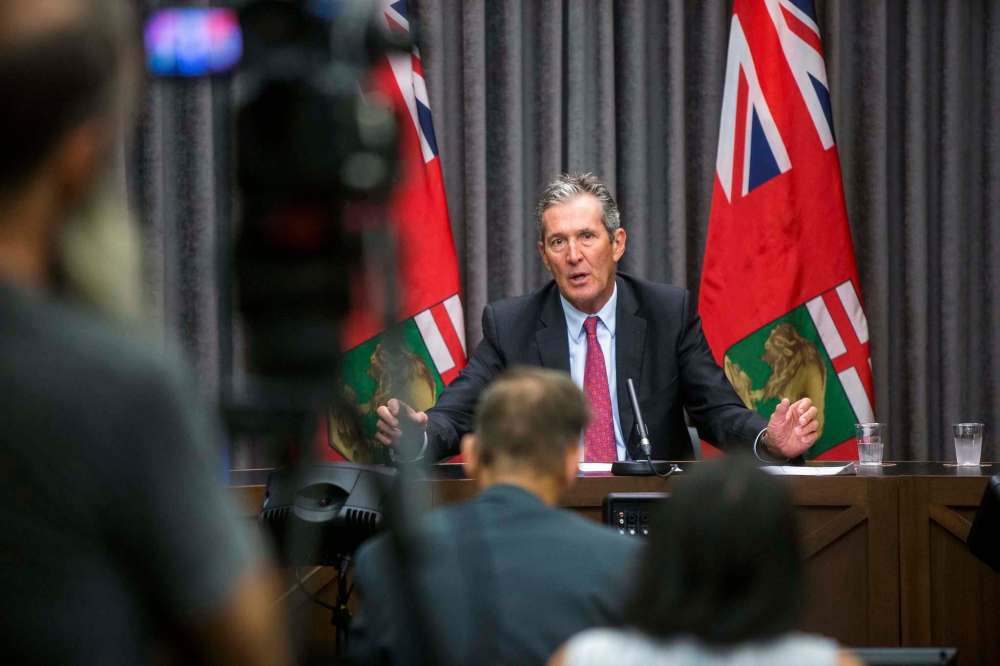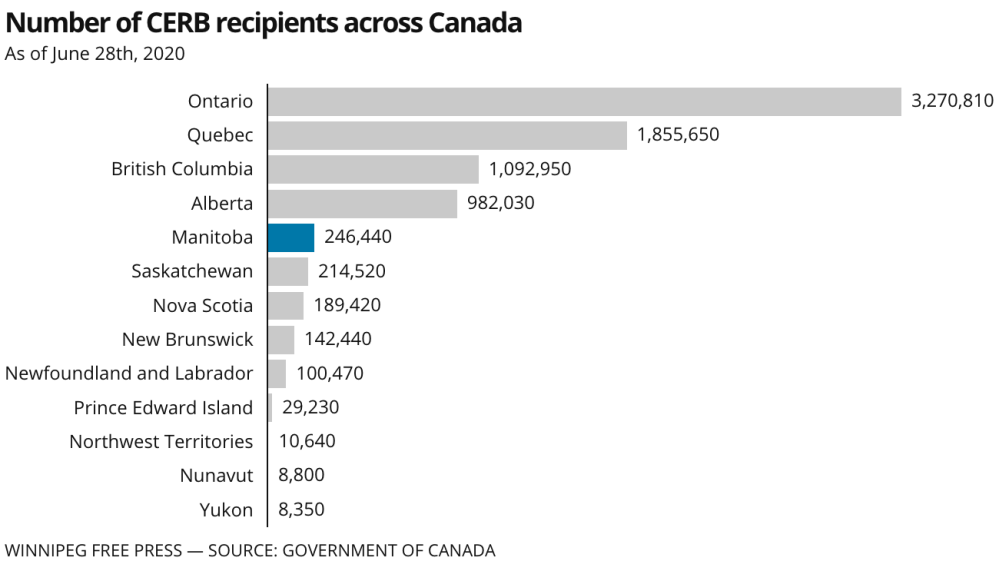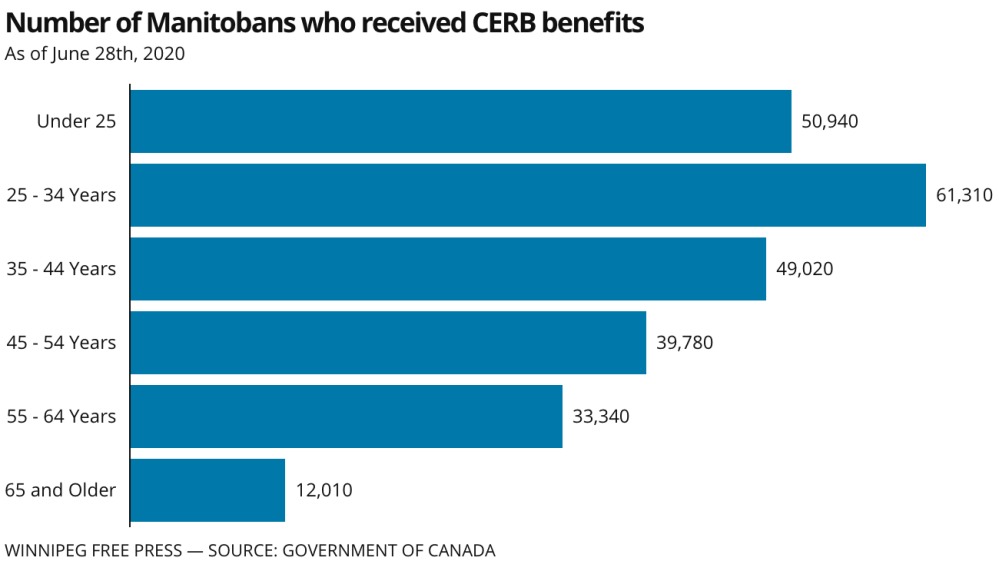Fewer than 4,500 apply for Manitoba back-to-work benefit
Advertisement
Read this article for free:
or
Already have an account? Log in here »
To continue reading, please subscribe:
Monthly Digital Subscription
$19 $0 for the first 4 weeks*
- Enjoy unlimited reading on winnipegfreepress.com
- Read the E-Edition, our digital replica newspaper
- Access News Break, our award-winning app
- Play interactive puzzles
*No charge for 4 weeks then billed as $19 every four weeks (new subscribers and qualified returning subscribers only). Cancel anytime.
Read unlimited articles for free today:
or
Already have an account? Log in here »
Hey there, time traveller!
This article was published 04/08/2020 (1359 days ago), so information in it may no longer be current.
A provincial government initiative Premier Brian Pallister once said could bring “tens of thousands” of Manitobans back to work has received only 4,459 applications.
The premier announced the Manitoba Job Restart Program in late June to wean Manitobans off federal emergency benefits, which he said acted as a disincentive to persons returning to their pre-pandemic jobs.
Applications for the provincial program closed at the end of July. It paid $2,000 to each Manitoban transitioning out of the Canada Emergency Response Benefit (CERB) or the Canada Emergency Student Benefit (CESB).

“It’s time to kick the CERB to the curb,” Pallister remarked as he rolled out the restart program, which was to be funded from unused funds from two other provincial COVID-19 programs.
The province revealed Wednesday it expects to pay out $8.9 million under the program — but it had been prepared to spend a lot more.
Jonathan Alward, director of provincial affairs for the Manitoba branch of the Canadian Federation of Independent Business, said he’s not surprised by the limited program take-up, given shaky consumer confidence due in part to the recent uptick in COVID-19 cases in Manitoba.
“The intent of the program was good and it addressed certainly a problem that we’d heard from small-business owners,” Alward said Wednesday.
However, NDP Leader Wab Kinew said the lukewarm response to the program showed the Progressive Conservative government failed to understand the importance of CERB. He said Manitoba Job Restart was part of a “continuing trend of poorly designed programs” by the PCs in response to COVID-19.
“Essentially, the government is giving out free money here and they were unable to attract people to access it,” Kinew said. “So that lets you know that there’s something wrong with the program’s design.”
Instead of trying to “shame” workers into ceasing to collect benefits from federal programs, the Opposition leader said, Pallister should have done more to help small businesses.
The government had said it would fund the job restart program from the unspent balances of a pair of $120 million programs, the Manitoba Gap Protection Plan (MGPP) and the Manitoba Summer Student Recovery Jobs Program. The premier said further funding would be made available if there was significant uptake in the program.
As of July 10, Manitoba had paid out $44.6 million from the MGGP; $20 million had been committed under the summer student jobs program.
Alward said it’s important the province direct any unspent funds to help small businesses cover rent costs, as well as additional operating costs due to the pandemic. The latter includes the costs of personal protective equipment, new signage, hand sanitizer and stations, and the cost of redesigning a business’s footprint to better accommodate customers.
A spokeswoman for Pallister said the government is pleased close to 4,500 Manitobans were able to take advantage of the program to “safely return to work full-time.”
“Throughout this pandemic we have created the right programs at the right time to help Manitobans navigate and bounce back from this unprecedented time,” she said.
larry.kusch@freepress.mb.ca

Larry Kusch
Legislature reporter
Larry Kusch didn’t know what he wanted to do with his life until he attended a high school newspaper editor’s workshop in Regina in the summer of 1969 and listened to a university student speak glowingly about the journalism program at Carleton University in Ottawa.
History
Updated on Thursday, August 6, 2020 12:38 PM CDT: Adds CERB charts




